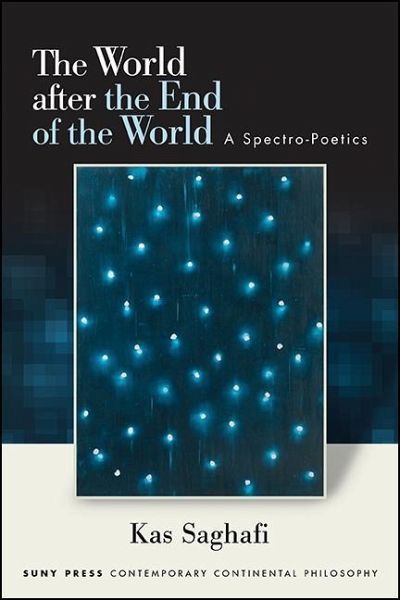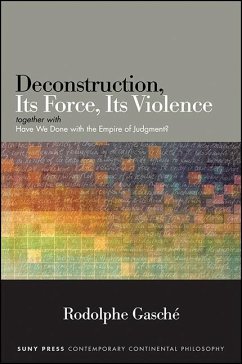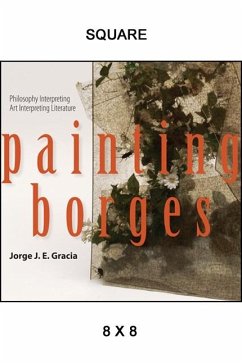
The World after the End of the World (eBook, ePUB)
A Spectro-Poetics
Versandkostenfrei!
Sofort per Download lieferbar
26,95 €
inkl. MwSt.
Weitere Ausgaben:

PAYBACK Punkte
13 °P sammeln!
Examines themes of loss and mourning in the late work of Derrida.In this book, Kas Saghafi argues that the notion of "the end the world" in Derrida's late work is not a theological or cosmological matter, but a meditation on mourning and the death of the other. He examines this and several other tightly knit motifs in Derrida's work: mourning, survival, the phantasm, the event, and most significantly, the term salut, which in French means at once greeting and salvation. An underlying concern of The World after the End of the World is whether a discourse on salut (saving, being saved, and salva...
Examines themes of loss and mourning in the late work of Derrida.
In this book, Kas Saghafi argues that the notion of "the end the world" in Derrida's late work is not a theological or cosmological matter, but a meditation on mourning and the death of the other. He examines this and several other tightly knit motifs in Derrida's work: mourning, survival, the phantasm, the event, and most significantly, the term salut, which in French means at once greeting and salvation. An underlying concern of The World after the End of the World is whether a discourse on salut (saving, being saved, and salvation) can be dissociated from discourse on religion. Saghafi compares Derrida's thought along these lines with similar concerns of Jean-Luc Nancy's. Combining analysis of these themes with reflections on personal loss, this book maintains that, for Derrida, salutation, greeting, and welcoming is resistant to the economy of salvation. This resistance calls for what Derrida refers to as a "spectro-poetics" devoted to and assigned to the other's singularity.
In this book, Kas Saghafi argues that the notion of "the end the world" in Derrida's late work is not a theological or cosmological matter, but a meditation on mourning and the death of the other. He examines this and several other tightly knit motifs in Derrida's work: mourning, survival, the phantasm, the event, and most significantly, the term salut, which in French means at once greeting and salvation. An underlying concern of The World after the End of the World is whether a discourse on salut (saving, being saved, and salvation) can be dissociated from discourse on religion. Saghafi compares Derrida's thought along these lines with similar concerns of Jean-Luc Nancy's. Combining analysis of these themes with reflections on personal loss, this book maintains that, for Derrida, salutation, greeting, and welcoming is resistant to the economy of salvation. This resistance calls for what Derrida refers to as a "spectro-poetics" devoted to and assigned to the other's singularity.
Dieser Download kann aus rechtlichen Gründen nur mit Rechnungsadresse in A, D ausgeliefert werden.













